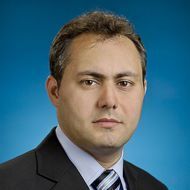HSE Develops Its Own MLOps Platform

HSE researchers have developed an MLOps platform called SmartMLOps. It has been created for artificial intelligence researchers who wish to transform their invention into a fully-fledged service. In the future, the platform may host AI assistants to simplify educational processes, provide medical support, offer consultations, and solve a wide range of other tasks. Creators of AI technologies will be able to obtain a ready-to-use service within just a few hours. Utilising HSE’s supercomputer, the service can be launched in just a few clicks.
Many researchers working in AI development lack sufficient experience in building web services, managing distributed computing resources, system administration, information security, and deployment process automation. SmartMLOps was created to help eliminate the need to learn additional technologies and to address issues of repeatability and reproducibility in machine learning experiments.
The project partners include the HSE AI Research Centre, the School of Software Engineering at the HSE Faculty of Computer Science, and the HSE Tikhonov Moscow Institute of Electronics and Mathematics (MIEM). Experienced and highly qualified HSE specialists are involved in the development and deployment of the MLOps platform.
According to the project lead, Hadi Saleh, the platform is already undergoing pilot testing. Its primary goal is to reduce the time and resources required to deliver product-level services. SmartMLOps ensures the necessary level of reliability, security, and transparency in the use of AI technologies. It allows developers to save time on non-core activities such as system administration, DevOps, and CI/CD. The platform provides a unified graphical interface through which users can create a repository with an AI module template, access models, a monitoring system, orchestrators, and the supercomputer, as well as track their services’ metrics and promptly address issues.
To create a multifunctional, user-friendly, and modern service, the platform’s developers tackled the complex challenge of integrating HSE’s cHARISMa supercomputer cluster into cloud computing. The platform is based on a microservice architecture, with the main component being a framework developed by the HSE AI Research Centre.

Hadi Saleh
‘The platform's functionality includes the creation, storage, versioning, training and fine-tuning of AI models; the deployment of ready-made models as product services with REST APIs; the construction of training pipelines; the monitoring of services and the overall state of computing resources; the ability to use data from HSE’s corporate information systems; and access to cloud storage and supercomputer resources. The framework itself and the first AI modules have already been deployed, and analytical dashboards for monitoring the platform’s status have been implemented. A special autoscaling technology was developed and introduced to save resources,’ said Hadi Saleh.
Unlike commercial solutions such as Amazon SageMaker or Google AI, SmartMLOps is primarily aimed at researchers and students at HSE. To gain access, they simply need to submit an application and await approval. Until the end of 2025, anyone interested may take part in the platform's pilot use.
A special ETL process was developed to securely extract and anonymise information from HSE’s corporate systems. This helps in analysing student behaviour and building predictive models, for example, to forecast career prospects.

Elena Kozhina
‘We expect that the implementation of the SmartMLOps system will mark a significant milestone in accelerating the development of AI-based services at our university,’ noted Elena Kozhina, Deputy Vice Rector and project curator.
At present, eight AI models have been deployed on the platform, and integration has been carried out with three of HSE’s corporate information systems. Two subsystems of the MLOps platform, developed with the involvement of specialists from the Faculty of Computer Science and MIEM, have been registered with the Russian Federal Service for Intellectual Property (Rospatent).

Sergey Lebedev
‘The development of such an ambitious and promising infrastructure project posed a considerable challenge and a timely necessity for the university. SmartMLOps enables the simultaneous solution of research, educational, and administrative tasks of various scales and levels. We managed to form a unique team of professionals and involve students and research assistants in the process,’ said Sergey Lebedev, Head of the School of Software Engineering at the HSE Faculty of Computer Science.

Anton Sergeev
Anton Sergeev, Director of the Centre for Software Development and Digital Services at HSE MIEM, emphasised that systematic work with AI models is impossible without MLOps platforms, which support the full lifecycle of models—from data import and cleaning to controlling the outcomes. ‘Such high-tech projects set a benchmark for AI leadership not only within our university, but across the country as a whole. They represent HSE’s scientific excellence in the form of a system that will assist ML specialists in applying AI models to a wide range of real-world problems,’ he said.

Pavel Kostenetskiy
Pavel Kostenetskiy, Head of the Supercomputer Modelling Unit, gave the service high praise. ‘The MLOps platform will make it easier for HSE researchers working in AI to access the ‘cHARISMa’ supercomputing cluster and will lower the entry threshold into high-performance computing. In a sense, HSE’s supercomputer will appear like a cloud within this MLOps platform, which many will find convenient,’ concluded Pavel Kostenetskiy.
See also:
Larger Groups of Students Use AI More Effectively in Learning
Researchers at the Institute of Education and the Faculty of Economic Sciences at HSE University have studied what factors determine the success of student group projects when they are completed with the help of artificial intelligence (AI). Their findings suggest that, in addition to the knowledge level of the team members, the size of the group also plays a significant role—the larger it is, the more efficient the process becomes. The study was published in Innovations in Education and Teaching International.
HSE Researchers Assess Creative Industry Losses from Use of GenAI
Speaking at the IPQuorum.Music forum on October 15, Leonid Gokhberg, HSE First Vice Rector, and Daniil Kudrin, an expert at the Centre for Industry and Corporate Projects of HSE ISSEK, presented the findings of the first study in Russia on the economic impact of GenAI on creative professions. The analysis shows that creators’ potential losses could reach one trillion roubles by 2030.
‘Fall into ML Has Firmly Established Itself as a Landmark Event in Russia’s AI Scene’
On October 24–25, 2025, the AI and Digital Science Institute of the HSE Faculty of Computer Science will host the fourth annual Fall into ML 2025 conference at the HSE Cultural Centre. The event is once again supported by its general partner, Sber. The focus this year is on breakthrough research and the future of fundamental AI.
Designing an Accurate Reading Skills Test: Why Parallel Texts are Important in Dyslexia Diagnosis
Researchers from the HSE Centre for Language and Brain have developed a tool for accurately assessing reading skills in adults with reading impairments. It can be used, for instance, before and after sessions with a language therapist. The tool includes two texts that differ in content but are equal in complexity: participants were observed to read them at the same speed, make a similar number of errors, and understand the content to the same degree. Such parallel texts will enable more accurate diagnosis of dyslexia and better monitoring of the effectiveness of interventions aimed at addressing it. The paper has been published in Educational Studies.
Intellectual Capital in the Face of Shocks: Russia and Iran Explore Internationalisation
In today's issue of Schola, Mariya Molodchik, Senior Research Fellow at the International Laboratory of Intangible-Driven Economy and Professor at the School of Economics and Finance at HSE University’s Campus in Perm, discusses a joint project with Iran University of Science and Technology, titled 'Internationalization of Companies from Developing Countries: The Role of Intellectual Resources in Response to Exogenous Shocks.'
HSE Researchers Introduce Novel Symmetry-Aware Neural Network Architecture
Researchers at the HSE Laboratory for Geometric Algebra and Applications have developed a new neural network architecture that can accelerate and streamline data analysis in physics, biology, and engineering. The scientists presented their solution on July 16 in Vancouver at ICML 2025, one of the world's leading conferences on machine learning. Both the paper and the source code are publicly available.
Critique of Obscure Reason: Artificial Intelligence in the Perception of Mathematicians
Mathematicians at HSE University believe that there is no need to fear losing jobs because of the widespread use of AI, while at the same time they warn against uncritical acceptance of works and projects prepared with its help. AI, however, can be a useful tool in research, creating models and processing large volumes of information.
Students from HSE and Other Universities Carry Out Research Expedition at New Chersonesos
As part of the Rediscovering Russia student expedition programme, HSE University organised a research trip under the framework of the School for Young Humanities Scholars to the New Chersonesos museum and church complex in Sevastopol. The results of this expedition will form the basis for proposals on educational projects aimed at shaping young people’s historical memory of the role of Chersonesos, Crimea, and the Byzantine legacy in the history of Russian culture and statehood.
HSE Researchers Determine Frequency of Genetic Mutations in People with Pulmonary Hypertension
For the first time in Russia, a team of scientists and clinicians has conducted a large-scale genetic study of patients with pulmonary arterial hypertension. The team, which included researchers from the International Laboratory of Bioinformatics at the HSE Faculty of Computer Science, analysed the genomes of over a hundred patients and found that approximately one in ten carried pathogenic mutations in the BMPR2 gene, which is responsible for vascular growth. Three of these mutations were described for the first time. The study has been published in Respiratory Research.
First Caucasus School on Experimental Research and Cognitive Sciences Takes Places in Adygea
On September 17–20, 2025, the First Caucasus School on Experimental Research and Cognitive Sciences took place at the Gornaya Legenda venue of Adyghe State University (ASU). The event was organised by the ASU Experimental Linguistics Laboratory, the HSE Centre for Language and Brain, and the HSE Centre for Sociocultural and Ethnolinguistic Studies. The school brought together over 50 participants—students, doctoral candidates, and early-career researchers from across Russia, along with lecturers and speakers from France, Serbia, China, Turkey, Kazakhstan, and Uzbekistan.


